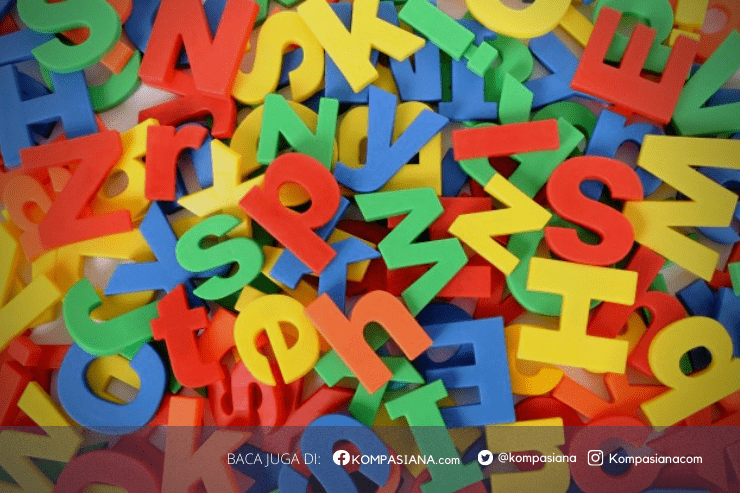Good communication means conveying messages clearly and understandably. A frequently debated topic is the role of grammar in communication. Some people on the internet argue that grammar is unimportant as long as the message delivered is understandable. However, others believe that grammar is very needed in communication. Therefore, does grammar really affect the communication process, or is it just a formality? This article will discuss both sides of the argument.
Crystal (2004) says that grammar is the foundation of our ability to express ourselves. The more we understand grammar, the more we will master the meaning and the use of language effectively. To elaborate further, the Cambridge Dictionary defines communication is the process of exchanging information sent from one place or person to another, or the message itself. To illustrate, communication can instantly occur by talking face-to-face or indirectly by using third-party applications like WhatsApp, Line, and iMessage.
Is Grammar Important in Communication?
Grammar plays an important role in the communication process, especially when doing indirect communication that requires third-party applications. One key role of grammar is preventing misunderstanding. Grammar mistakes can change the meaning of a sentence, which potentially leads to confusion between the parties involved in the communication process.
For example:
- "I love cooking my family and my dog" It means that the one who speak likes to cook her family and her dog. That is scary!
- "I love cooking, my family, and my dog" It means that the one who speak enjoys cooking as well as loves her family and her dog.
It can be observed from the example above that the sentence has a different meaning just because of one comma.
- "I am cooking dinner" It means that the speaker is cooking the dinner at the moment of speaking.
- "I cooked dinner" It means that the speaker already finished cooking the dinner.
It becomes clear that a sentence or paragraph becomes more precise and accurate when proper grammar is applied.
Why do Some Believe Grammar is Overrated?
In casual or informal situations, the primary purpose of communication is to convey the message, rather than strictly adhering to proper grammar rules. For example:
- "I no understand" Even when the sentence lacks of grammar, the meaning of the sentences can still be understood.
Therefore, in casual conversations, the speed and efficiency in responding to the message take priority over grammar accuracy. For example:
- "brb" (be right back) Such an acronym is often used in casual chats with friends and can be understood well.
Paying too much attention to grammar in informal or casual communication can make the conversation stiff and less natural. For that reason, many people use informal words in daily conversation so that the communication feel more relaxed. For example:
- "I want to go home" to "I wanna go home"
Grammar in Informal vs Formal Communication
Communication can happen both formally and informally. Formal communication is usually done in a professional context or official setting. In contrast, informal communication is typically spontaneous, such as when conversing with friends. Here are the examples of grammar usage in formal and informal communication:
- Formal: "Thank you for your time. Should you have any further questions, please do not hesitate to contact me."
- Informal: "Thanks! Let me know if you need anything else."
We must understand the use of grammar in formal and informal communication because they serve different purposes and suit different situations. By understanding the difference between formal and informal communication, we can communicate effectively in various situations.
The Advantages of Using Correct Grammar
Besides preventing misunderstandings, using correct grammar is advantageous for various aspects of your life. Here are the reasons:
- Enhances Credibility, proper grammar shows that you know what you are talking about. People will see you as trustworthy and capable.
- Support a Professional Image, using correct grammar helps you appear more professional, especially in formal communication or environment. How you communicate affects how people perceive you.
- Boosts Confidence, when using correct grammar, you don't need to worry whether people will understand you.
Conclusion: Fake or Fact?
It is a FACT that grammar affects the communication process. Grammar is not merely a formality; it serves as the foundation of effective communication. Good grammar makes sentences easy to understand and prevents misunderstandings. However, communication can still occur even when the grammar is not perfect. While grammar is not always essential for communication, many grammar mistakes can lead to confusion, especially in formal situations. Using grammar appropriately based on the situation and context is important for effective communication.
So, grammar isn’t just about being formal—it’s about making your message clear for everyone!
References
Crystal, D. (2004, April 30). "In Word and Deed". TES Teacher. https://www.tes.com/magazine/archive/word-and-deed
Online Cambridge Dictionary. Communication. https://dictionary.cambridge.org/dictionary/english/
Noble Desktop. The Impact of Grammar on Professional Credibility. https://www.nobledesktop.com/learn/business-writing/the-impact-of-grammar-on-professional-credibility
Follow Instagram @kompasianacom juga Tiktok @kompasiana biar nggak ketinggalan event seru komunitas dan tips dapat cuan dari Kompasiana. Baca juga cerita inspiratif langsung dari smartphone kamu dengan bergabung di WhatsApp Channel Kompasiana di SINI







